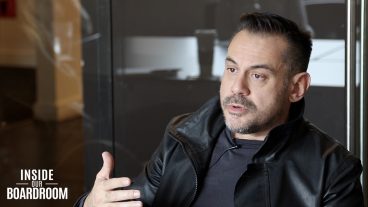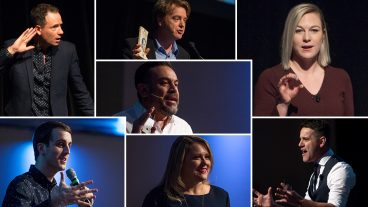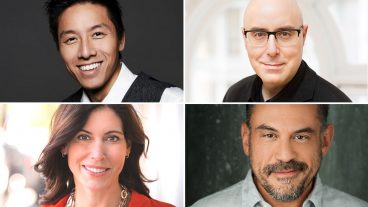Digital disruption has brought the demise of many seemingly rock-solid organizations. Technology is changing the ways in which consumers behave as well as their expectations. So, to survive the onslaught of the digital revolution, organizations must see technology as an opportunity instead of an enemy and use it to enhance their key purpose.
Business and technology visionary Leonard Brody explores this new trend — digital reinvention — in his latest article for The Great Rewrite, his award-winning content marketing series, in partnership with Forbes and KPMG. Through this series, Leonard delves into the profound trends that are rewriting the way we work and live through long-form journalism, case studies, videos, and first-person insights.
In his most recent article, he looks at how companies are using technology to redefine how they do business, expanding their services to meet the new expectations of their consumer base. Below is an excerpt from Leonard’s article, read the whole piece and watch the accompanying video here.
From a $32 billion manufacturer of farm equipment to the public library in a quiet Ivy League town, the need to adapt has pressured every organization. Leaders must ask key questions: What do we do best, and how can we keep doing it? What do our customers want and expect from us? Who is stealing customers’ attention and their business? What technologies are disrupting us, and which should we adopt?
“The challenge is to pivot your business model while maintaining enough of your core offering,” said Fiona Grandi, strategic investments leader for KPMG LLP. “It’s taking that core of what you do best, and building on and diversifying that strength.”
…
The Princeton Public Library (PPL) in Princeton, New Jersey, has roots that go back to 1812. A library may seem like an unconventional model for companies that need to respond to digital disruption. But the PPL has been engaged in an ongoing rewrite since the early 2000s, when some of its core services — the centuries-old functions of a library — came under siege. Web searches and encyclopedia sites were making stacks of printed reference books useless. Bookstore chains were going out of business, and it seemed the very nature of reading was evolving. A 2002 Gallup poll indicated that 18 percent of Americans hadn’t read a book in the past year, more than double the 1979 figure. The library couldn’t carry on as just a transactional provider of books.
“We said, ‘Let’s kind of explode the whole concept of what a library is,’” said Leslie Burger, who was library director at the time and now is a consultant. “It wasn’t about making the book stacks prettier. It was, ‘Do we need book stacks anymore?’ It was making some risky choices, thinking about what the library should be doing to accommodate the next generation of users. That is as true for a library as it is for a technology company or a retailer. Thinking about how people’s behavior changes, what they’re looking for, who your competition is. And how to position your organization to be an integral part of the lives of the people you want to serve.”
Walk into the PPL building today and the first thing you see is a cafe. “Everyone said, ‘I can’t believe you’re going to have a cafe in a library,’” Burger recalled. “The community was questioning whether I was sane.” By the time the library’s modern building opened in 2004, she says, the question became, ‘Are you sure you have enough seats in the cafe?’”
There’s also a small used bookstore and parking validation. Books on the ground floor are arranged in “neighborhoods,” as in a bookstore rather than on dusty Dewey Decimal shelves. Comfortable seating is everywhere, used by families, freelancers, students, seniors, teenagers. A vinyl LP listening station with headphones has been set up in partnership with the local used-record store. Bulletin boards highlight an average of seven daily events, from films and lectures to spelling bees and language-learning classes. The library today considers itself a “lifelong learning partner” and “community living room.”
…
The library’s experience with books offers a clear lesson to any company responding to change. “Pay attention when people are telling you they’re not yet finished with a thing,” Bonfield said. “Remember what it is you do well and what people want, and don’t give up that piece of it.”
Leonard Brody is currently the Chairman of Creative Labs, a joint-venture with Creative Artists Agency, the largest sport and entertainment agency in the world, and is an award- winning entrepreneur, venture capitalist, bestselling author, and two-time Emmy nominated media visionary.
In his compelling, customized talks Leonard addresses the rapid pace of change, innovation, and disruption facing us all, and what to do about it.
Interested in learning more about Leonard and what he can bring to your next event? Email us at [email protected].




